News
Une veille documentaire for World Association for the School as an Instrument of Peace (EIP)
mer, 11/19/2014 - 18:43 — CIFEDHOP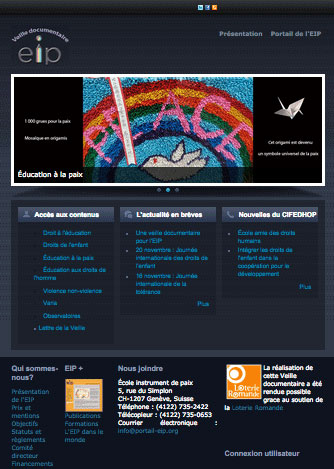 School as an Instrument of Peace (EIP) is happy to launch an Observatory on Human Rights and Peace Education.
School as an Instrument of Peace (EIP) is happy to launch an Observatory on Human Rights and Peace Education.
- Vous devez vous identifier ou créer un compte pour écrire des commentaires
- Lire la suite
- Français
 Recommander cette page à un(e) ami(e)
Recommander cette page à un(e) ami(e)
Human Rights Friendly School
mer, 11/12/2014 - 09:26 — CIFEDHOP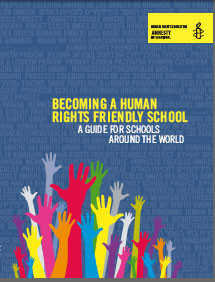 Amnesty International a produit en 2012 un guide "pour les écoles à travers le monde"
Amnesty International a produit en 2012 un guide "pour les écoles à travers le monde"
- Vous devez vous identifier ou créer un compte pour écrire des commentaires
- Lire la suite
- Français
 Recommander cette page à un(e) ami(e)
Recommander cette page à un(e) ami(e)
Integrating Child Rights in Development Cooperation
lun, 10/27/2014 - 10:39 — CIFEDHOP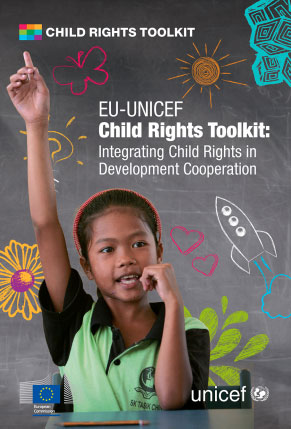 The European Commission and UNICEF developed an innovative toolkit for development partners to integrate child rights in all sectors of programming and policy-making
The European Commission and UNICEF developed an innovative toolkit for development partners to integrate child rights in all sectors of programming and policy-making
This toolkit offers a set of tools and practical guidance on how children’s rights and initiatives to promote the well-being of all children can be effectively integrated and applied across programmes of bilateral and multilateral development assistance.
- Vous devez vous identifier ou créer un compte pour écrire des commentaires
- Lire la suite
- Français
 Recommander cette page à un(e) ami(e)
Recommander cette page à un(e) ami(e)
39 States encourage the Human Rights Council to act against lack of implementation
ven, 09/26/2014 - 08:49 — CIFEDHOP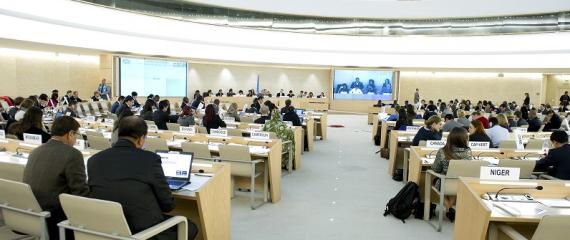
On 22 September 2014, in a statement read by Macedonia FYR, 39 States called on the Human Rights Council (the Council) to react to the lack of implementation of UPR recommendations.
- Vous devez vous identifier ou créer un compte pour écrire des commentaires
- Lire la suite
- Français
 Recommander cette page à un(e) ami(e)
Recommander cette page à un(e) ami(e)
Human Rights Education and the Commodification of Education
lun, 09/22/2014 - 15:54 — CIFEDHOP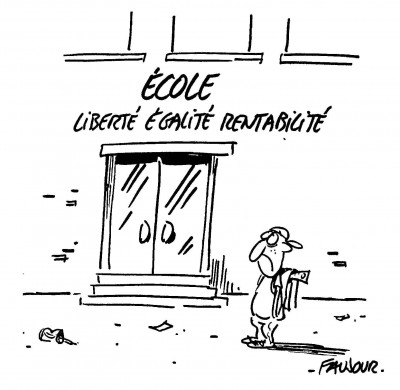 Jean Hénaire - the author of this article - seeks to evaluate the future of education by taking into account its commodification at all levels. Despite the influence of pedagogical essays and progressive schools one must realize that we are far from achieving an education designed as a common good. It is rather the opposite that we have to deal with. So, in this context, human rights education still has a rather long way to go before achieving its goals.
Jean Hénaire - the author of this article - seeks to evaluate the future of education by taking into account its commodification at all levels. Despite the influence of pedagogical essays and progressive schools one must realize that we are far from achieving an education designed as a common good. It is rather the opposite that we have to deal with. So, in this context, human rights education still has a rather long way to go before achieving its goals.
- Vous devez vous identifier ou créer un compte pour écrire des commentaires
- Lire la suite
- Français
 Recommander cette page à un(e) ami(e)
Recommander cette page à un(e) ami(e)
A Guide on Justice for french schools
mar, 09/09/2014 - 13:33 — CIFEDHOP
The french national Centre on pedagogical documentation has just released a guide on preventive and restaurative justice for secondary schools.
- Vous devez vous identifier ou créer un compte pour écrire des commentaires
- Lire la suite
- Français
 Recommander cette page à un(e) ami(e)
Recommander cette page à un(e) ami(e)
Youth advocacy toolkit: The Education We Want
lun, 09/01/2014 - 09:18 — CIFEDHOP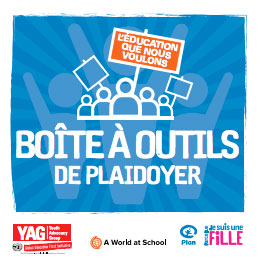
This advocacy toolkit, produced in partnership with A World at School and the Youth Advocacy Group of the Global Education First Initiative, has been developed for young people, by young people.
Packed full of ideas, tools and inspiring stories, the resource helps children and youth to effectively advocate for their right to an education.
- Vous devez vous identifier ou créer un compte pour écrire des commentaires
- Lire la suite
- Français
 Recommander cette page à un(e) ami(e)
Recommander cette page à un(e) ami(e)
In Canada, thousands of children are deprived of their right to education
lun, 08/25/2014 - 12:25 — CIFEDHOP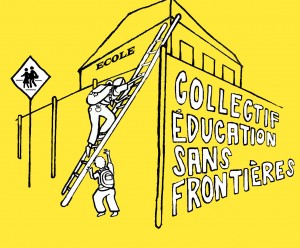 In Canada, thousands of children are denied their rights to free education. Most of the time their parents are undocumented workers. In order to allow those children to attend school, public authorities require school fees even though public compulsory education is free all over the country. With a few fortunate exceptions though such as the Toronto school board where the « don’t ask, don’t tell » principle was adopted in 2006.
In Canada, thousands of children are denied their rights to free education. Most of the time their parents are undocumented workers. In order to allow those children to attend school, public authorities require school fees even though public compulsory education is free all over the country. With a few fortunate exceptions though such as the Toronto school board where the « don’t ask, don’t tell » principle was adopted in 2006.
- Vous devez vous identifier ou créer un compte pour écrire des commentaires
- Lire la suite
- Français
 Recommander cette page à un(e) ami(e)
Recommander cette page à un(e) ami(e)
Civil society Follow-up Kit 2014
mer, 08/20/2014 - 12:14 — CIFEDHOP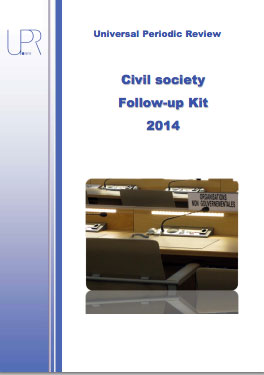 UPR-info has worked to make available to civil society «a kit which aims at providing an explanation to civil society on how to fully engage in the UPR follow-up process. It presents the tools that stakeholders should use when following the Review, as well as the actions they could initiate.
UPR-info has worked to make available to civil society «a kit which aims at providing an explanation to civil society on how to fully engage in the UPR follow-up process. It presents the tools that stakeholders should use when following the Review, as well as the actions they could initiate.
- Vous devez vous identifier ou créer un compte pour écrire des commentaires
- Lire la suite
- Français
 Recommander cette page à un(e) ami(e)
Recommander cette page à un(e) ami(e)
Bilan de la mise en oeuvre par la Moldavie des recommandations de l’EPU
mer, 08/13/2014 - 11:16 — CIFEDHOP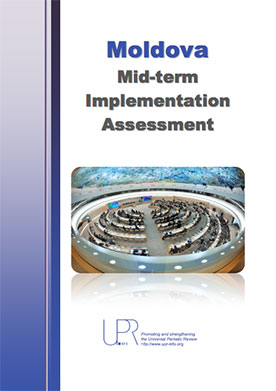
UPR Info has released the Mid-term Implementation Assessment (MIA) on Moldova. The MIA is based on information received from all stakeholders. It details whether recommendations were fully, partially or not implemented approximately three years after the Universal Periodic Review. It is a quick overview of the implementation of recommendations and a way to prepare for the next UPR as well.
- Vous devez vous identifier ou créer un compte pour écrire des commentaires
- Lire la suite
- Français
 Recommander cette page à un(e) ami(e)
Recommander cette page à un(e) ami(e)